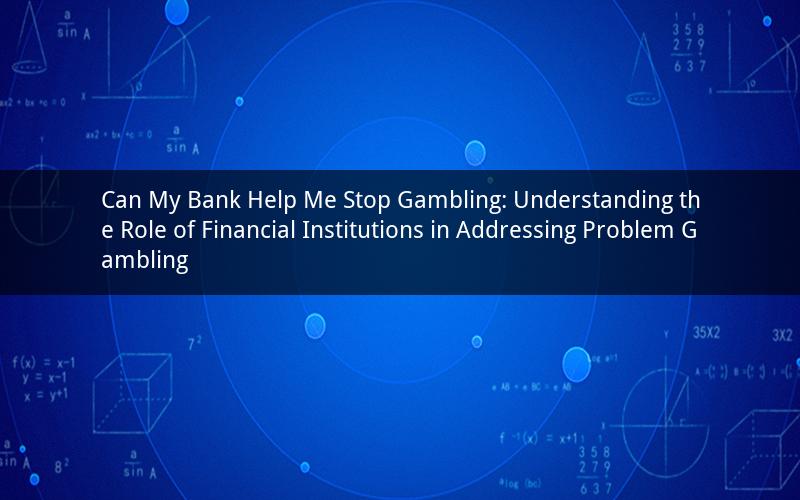
Problem gambling is a significant issue affecting individuals, families, and communities worldwide. While there are various strategies and support systems available to help individuals overcome gambling addiction, financial institutions play a crucial role in addressing this problem. This article explores how banks and other financial institutions can help individuals stop gambling, including the services and tools they offer and the importance of proactive measures.
Bank-Specific Measures to Address Problem Gambling
Many banks have implemented specific measures to help their customers combat problem gambling. These measures include:
1. Financial Blocking Services
Financial blocking services allow individuals to restrict access to certain types of transactions, such as online gambling sites or ATMs. This helps prevent individuals from using their bank accounts to fund their gambling activities.
2. Account Alerts and Notifications
Banks can provide customers with account alerts and notifications that inform them of unusual activity, such as multiple withdrawals or transfers to unfamiliar accounts. These alerts can help individuals recognize potential signs of problem gambling.
3. Dedicated Helpline and Resources
Many banks have dedicated helplines and resources to assist customers who may be struggling with problem gambling. These resources can include information on support groups, counseling services, and other resources to help individuals overcome their addiction.
The Importance of Proactive Measures
Proactive measures by financial institutions are essential in addressing problem gambling. By offering these services and tools, banks can:
1. Prevent Financial Damage
Problem gambling can lead to significant financial losses, resulting in debt, foreclosure, and other financial problems. By helping individuals stop gambling, banks can prevent this financial damage and provide a path to recovery.
2. Promote Responsible Financial Behavior
By providing tools and resources to address problem gambling, banks can promote responsible financial behavior among their customers. This helps create a healthier financial environment for all.
3. Support Public Health and Safety
Problem gambling can have severe consequences for individuals and communities, including mental health issues, financial crises, and even violence. By addressing problem gambling, banks contribute to the overall public health and safety of their communities.
How to Work with Your Bank
If you or someone you know is struggling with problem gambling, it's important to work with your bank to address this issue. Here are some steps you can take:
1. Contact Your Bank
Reach out to your bank's customer service department to discuss your concerns about problem gambling. Be honest and open about your situation.
2. Request Financial Blocking Services
If available, request financial blocking services to prevent access to online gambling sites or ATMs.
3. Seek Support and Resources
Ask your bank about dedicated helplines, counseling services, and other resources that can help you overcome your addiction.
4. Regularly Monitor Your Account
Stay vigilant about your bank account activity, and report any suspicious transactions to your bank immediately.
Related Questions and Answers
1. What are the signs of problem gambling?
Signs of problem gambling include secretive behavior, spending excessive amounts of time gambling, neglecting responsibilities, and experiencing financial problems due to gambling.
2. How can I tell if someone is struggling with problem gambling?
Look for signs such as secretive behavior, changes in mood or personality, financial troubles, and neglecting relationships or responsibilities.
3. What should I do if I suspect someone is struggling with problem gambling?
Encourage the person to seek help from a professional counselor or support group. You can also offer to help them find resources and support.
4. Can problem gambling be treated?
Yes, problem gambling can be treated with therapy, counseling, and support from family, friends, and professionals.
5. How can I prevent problem gambling in my family?
Educate yourself and your family about the risks of problem gambling. Encourage open communication and responsible financial behavior within your family.
By understanding the role of financial institutions in addressing problem gambling, individuals can take proactive steps to overcome their addiction and create a healthier financial future. Working together with banks and other support systems, we can help combat this pressing issue and protect the well-being of individuals and communities worldwide.